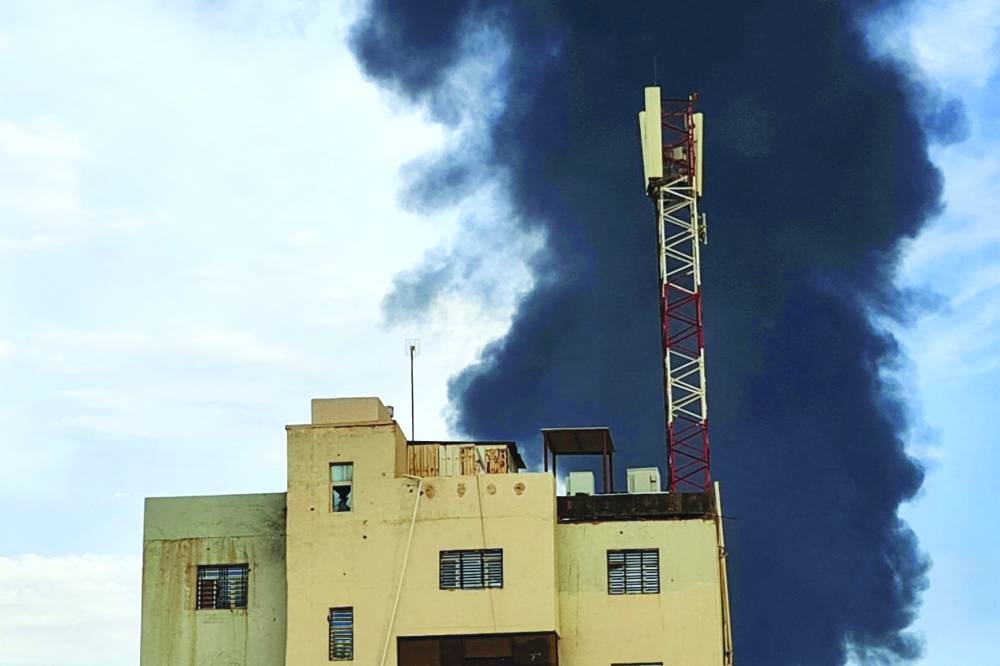It is apparent that the recent sanctions imposed on the Sudanese Armed Forces (SAF) and the Rapid Support Forces (RSF) have had some impact. They resulted in some willingness to go back to the negotiating table. This hypothesis is enhanced by the fact that representatives of SAF and RSF are still in Jeddah. Nevertheless, SAF has suspended its participation in Jeddah talks with RSF as it has been battling for weeks for control of Khartoum. The development came as a blow to the United States and Saudi Arabia which have been mediating between the two sides whose conflict has plunged Sudan into chaos.
One, at this juncture, hopes that no more sanctions are levied soon as that may create a state of despair. Now, the two warring parties have a sense of fear. Likely, quick harsher sanctions would complicate and worsen the present armed landscape. Furthermore, additional grave sanctions may push parties (if losing the support of the West) to suicidal acts or more destructive events. The RSF may find no option but to resort to Wagner and other supporters. If Wagner finds a clearance to wade into the bloody waters of this current situation, there will be devastating consequences in Sudan and neighbouring countries. This will also isolate the RSF and make it difficult for it to maintain open lines with the West. SAF also finds it necessary to receive military assistance from regional sympathetic countries.
Momentarily, the US. & Saudi Arabia are still calling “the parties to agree to and effectively implement a new ceasefire, with the aim of building to a permanent cessation of hostilities”. Hence, delaying further sanctions is worthwhile. There is no doubt that the US-Saudi initiative is the first thoughtful attempt to end the fighting. They should, still, push hard for a close to the armed conflict. Additionally, they should firmly press for serious negotiations to pave the way for a comprehensive political settlement.
The US-Saudi initiative must not give up its aims to provide a positive end – condemnation and refusal for any disruption to the interests of the Sudanese people in achieving a full civil state, restoring transformation, and ending the military coup. The civilian, democratic, peaceful aspirations should be met and fulfilled. Biden’s recent executive order states clearly that it is the policy of the United States to support a transition to democracy and the civilian transitional government in Sudan, to defend such a transitional government from those who would prevent its initial formation through violence and other methods, and once formed, to protect it from those who would undermine it.
The US and Saudi in co-operation with like-minded partners, will help such a transitional government, when formed, meet the needs of the Sudanese people. Thus, they will be prepared for democratic elections. The two parties should be pushed back to the negotiating table. Optimistically, SAF might find it of value to return to the negotiating table.
The humanitarian situation on the ground is extremely dire. Sixty hospitals are not functioning. According to reports, Sudan now ranks among the UN’s uppermost alert zones for food insecurity, requiring “urgent” action from the international community. A good sign — perhaps a key breakthrough, is from the United Nations World Food Programme. WFP said on Monday, May 29, that it had commenced reaching thousands of Khartoum’s stuck inhabitants. WFP is trying to assist 4.9mn vulnerable people inside Sudan and thousands more who have escaped to neighbouring countries. The government of Japan has extended its support to the WFP in Egypt, contributing US$500,000 to deliver critical food assistance to those who were and are fleeing the armed conflict in Sudan.
Recent reports add Sudan to the list of countries enduring great difficulties. The Rome-based Food and Agriculture Organisation and World Food Program said Afghanistan, Nigeria, Somalia, South Sudan and Yemen remain at the highest alert level. And now Haiti, the Sahel — Burkina Faso and Mali — and Sudan join them,” the agencies said in a joint report. The report spotlights the risk of a spillover of the Sudan crisis.
l Mohamed Sulieman al-Shazly is a prolific writer and senior TV producer. The British/Sudanese author has won several awards for his work, including the Tayeb Salih International Prize for Creative Writing.

Black smoke billows behind buildings amid ongoing fighting in Khartoum on Friday. Sudan’s warring generals have agreed to a 24-hour ceasefire from June 10, US and Saudi mediators said, acknowledging that previous attempts to pause a conflict now nearing its third month had proved abortive. (AFP)
